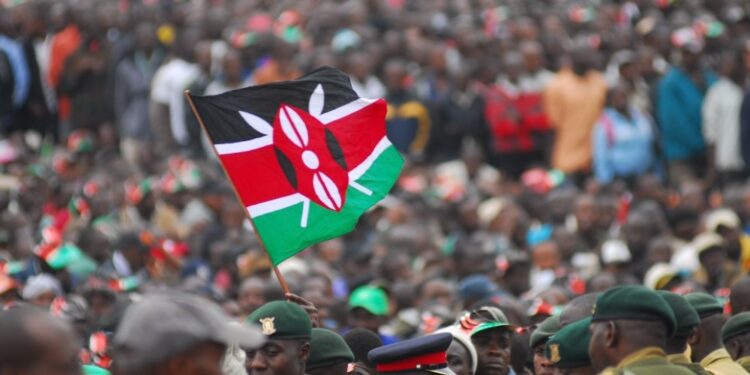Kenya’s ability to grow economically and become competitive in the global sphere is entirely held back by high levels of corruption that penetrate every sector of the economy. Ranging from land registry, judiciary, police force, public sector, tax man, customs administration, public procurement, politicians, even to natural resources. Virtually every sector of the country’s economy has its foot stuck in the public enemy number one, corruption. Corruption in the post-colonial government of Kenya has a history which spans the eras of all governments.
Most bribes paid by urban residents in Kenya are fairly small but large ones are also taken. Despite market reforms, business corruption is still widespread and that companies frequently encounter demands for bribes and informal payments to ‘get things done’ in Kenya. The public procurement sector in Kenya suffers widespread corruption. The use of agents to facilitate business operations and transactions in Kenya is widespread and poses a risk for companies, particularly at the market entry and business start-up stage.
Here are some of the reasons why Kenya ranks among the most corrupt countries in the world.
- Politicians are often seen around dishing money and other goodies to buy votes from the people during elections, this shows the height of corruption in the country that people are willing to sell their right to elect appropriate leaders for money.
- When it comes to employment, Kenya is a society of who knows who. Job opportunities are not given to deserving qualified individuals, but are offered to those who are known, or those from a particular tribe, or those ready to offer a bribe, thus oppressing others.
- Kenyans should be aware that possession of a land title does not guarantee property ownership, making land-grabbing and seizures by powerful elite common as a result of pervasive corruption and impunity.
- Fake land title deeds are frequently used and disappearances of title deeds from the Registrar’s office are common; houses built on illegally acquired property are often demolished without prior notice.
- Kenyans report a high likelihood of bribery demands in meetings with land service officials, and corrupt practices reportedly occur in almost 20% of all interactions.
- Property rights protections are inadequately enforced.
- Registering property in Kenya takes around the same time as the regional average, but it requires 9 steps compared to an average of 6 steps elsewhere in the region.
- The Kenya National Police Service is ranked as the most corrupt institution in the country, and bribery is reported to be the only way to access the police and expedite services.
- Half of all Kenyans who have come into contact with the police, have paid a bribe.
- The police also struggle with a lack of oversight and organizational and technical deficiencies.
- Kenya’s police relentlessly engage in false imprisonment, abuse of human rights and fabrication of charges to extort bribes.
- Corrupt police officers are rarely arrested or prosecuted for corruption crimes.
- Companies report the business costs of crime in Kenya to be high and police reliability is rated as poor.
- A third of Kenyans view the judiciary as corrupt, bribes and irregular payments in return for favorable decisions are common.
- Companies encounter difficulties resolving disputes because of weak institutional capacity, a lack of transparency and discrimination in favor of local actors.
- The judiciary is not being sufficiently independent and do not consider the legal framework effective for dispute settlement or challenging regulations.
- Most companies see the court system as a major constraint to their ability to do business in Kenya.
- Enforcing a contract in Kenya takes 465 days on average.
- Kenya is a signatory to the 1958 New York Convention on the Recognition and Enforcement of Foreign Arbitral Awards, but it is not a member state to the International Centre for the Settlement of Investment Disputes.
- Complying with administrative requirements takes a lot of time and is plagued by red tape.
- Registration and licensing services are severely affected by bribery, making starting a business very costly.
- One in six companies expects to give gifts and make informal payments to get an operating license, and every third company expects to pay bribes to obtain a construction permit.
- Businesses experience difficulties when dealing with utility services; an estimated quarter of all firms report paying bribes and facilitation payments to acquire electrical and water connections.
- Irregular payments and bribes in the process of tax payments are very common.
- Tax rates are identified among the most problematic factors for business, and the process of filing taxes is burdensome.
- On average, companies make 31 tax payments a year and spend nearly 200 hours filing, preparing, and paying taxes.
- Rampant corruption at Kenya’s ports and border points is the most problematic factor for international trade, followed by tariffs, burdensome import procedures and crime.
- Border compliance procedures in Kenya take significantly longer than the regional average.
- Bribery of border officials lets Al-Shabaab fighters enter the country easily to organize terrorist attacks that fuel the costs of business.
- It is also alleged that Kenya’s army is involved in a sugar-smuggling racket with the Islamist group Al-Shabaab, worth as much as $400 million a year.
- The Port of Mombasa has been named as a major hub in the illicit ivory trade; corruption, conflicting interests of the various authorities involved, and weak scanning abilities facilitate the trade.
- Companies report that bribes and irregular payments are highly common in the process of awarding public contracts.
- Tendering fraud is the fastest growing economic crime in Kenya.
- Businesses report that the vendor selection stage is most likely to be subject to fraud.
- Allegations exist that high-level corruption takes place in energy, airport construction, and infrastructure procurement processes; a number of contracts were awarded to foreign firms that allegedly did not comply with public procurement laws in Kenya.
- The process of devolution has led to an increase of patronage in county-level procurement processes.
- A survey among government officials concluded that procurement fraud is prevalent, particularly on the county level.
- Diversion of public funds and favoritism in the decisions of public officials to be common.
- Despite the government’s efforts to curb corruption in the KWS, conviction rates for corrupt officials and wildlife offenders are very low.
- Extensive deforestation and forest degradation in Kenya are direct results of extensive corruption by forest management officials.
- It is alleged that some members of Kenya’s Forest Service collude with loggers in kickback schemes.
- Businesses should note the enforcement of anti-corruption legislation in Kenya is inadequate as a result of the weak judicial system and a lack of strong institutions.
- The Witness Protection Agency is underfunded and doubts about its independence exist.
- Kenya’s media environment is considered ‘partly free’.
- The government does not completely respect freedoms of press and expression; journalists are facing increasing pressure from authorities and new laws that challenge their ability to report freely.
- Self-censorship is on the rise and journalists experience harassment from authorities that try to prevent critical work from being published.
- The Information and Communication Act provides for excessive government control of Kenya’s media and allows the government-controlled board to impose fines on media houses and reporters for violations of a code of conduct created by the board.
- Parliament generally welcomes the expertise of civil society organizations, but decision-makers in government generally ignore civil society.
- In the past few years, the government has attempted a (thus far largely unsuccessful) crackdown on civil society organizations, thus taming their influence.
- In times of high political tension, Kenyan civil society tends to operate according to lines of ethnic interests.



































































































































































































I thought Uganda was the leading country
It’s rather obvious. Walks and quacks like a duck so it is a duck.
More corrupt than Nigeria?
Come to Uganda
In fact if we are not careful enough we will be rank no. One